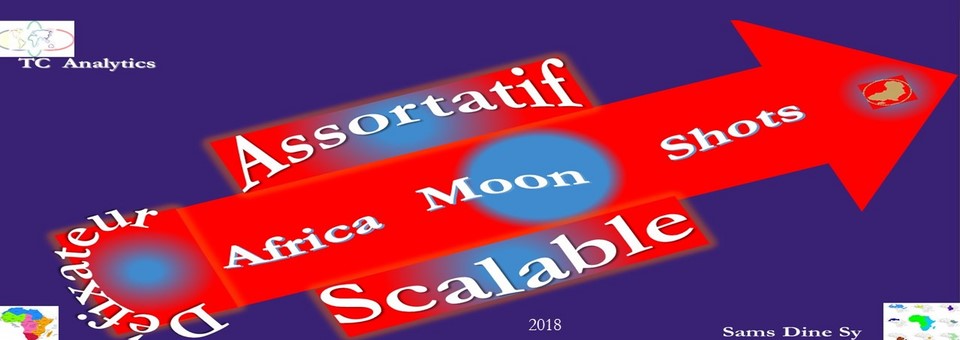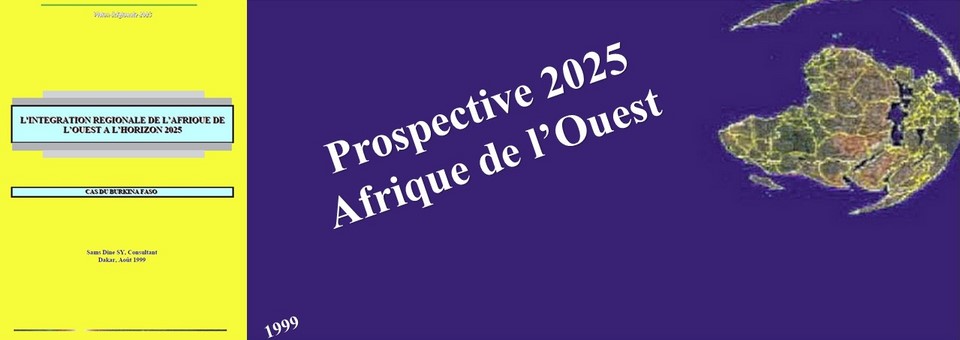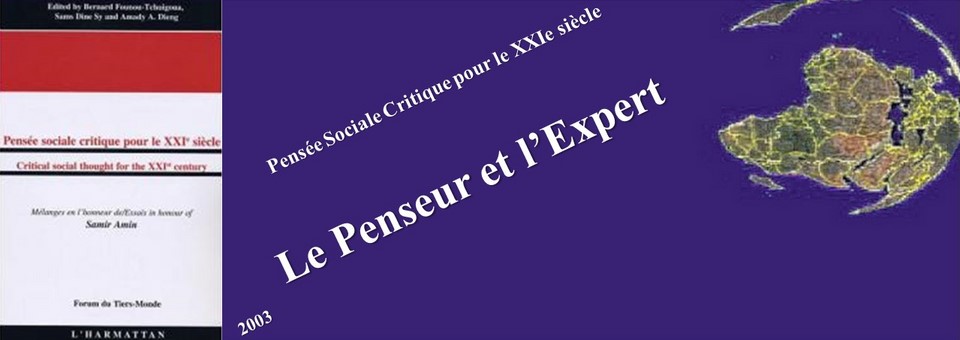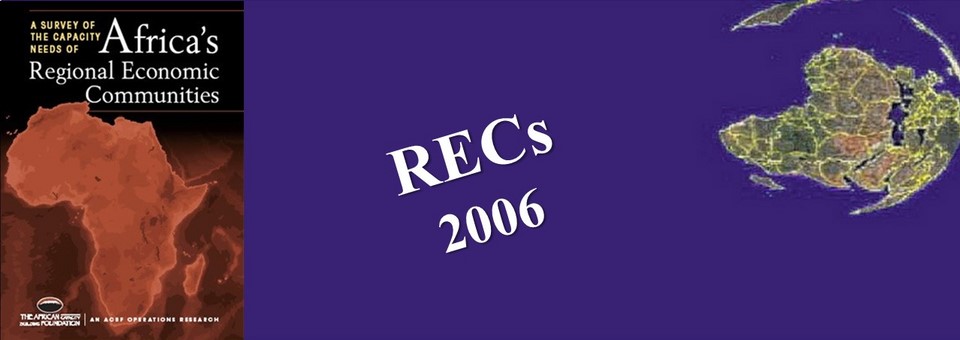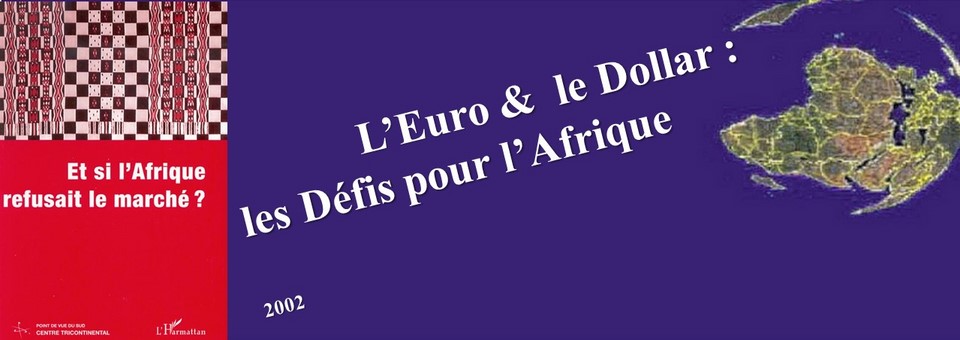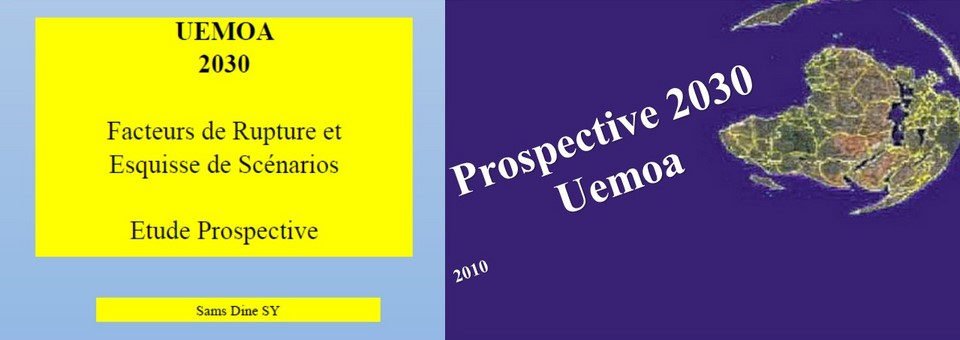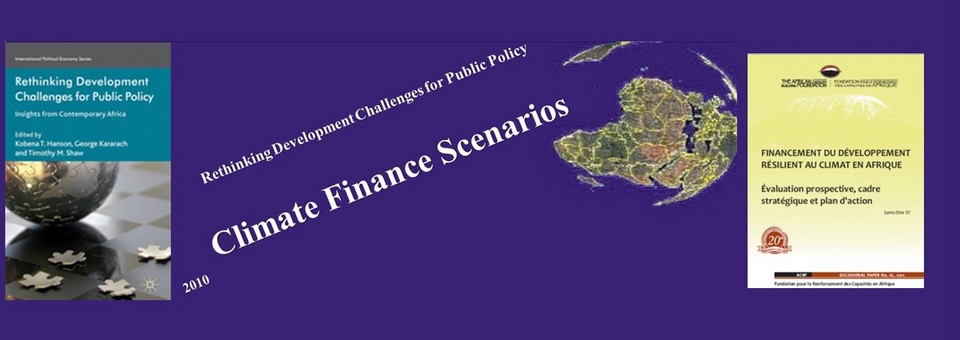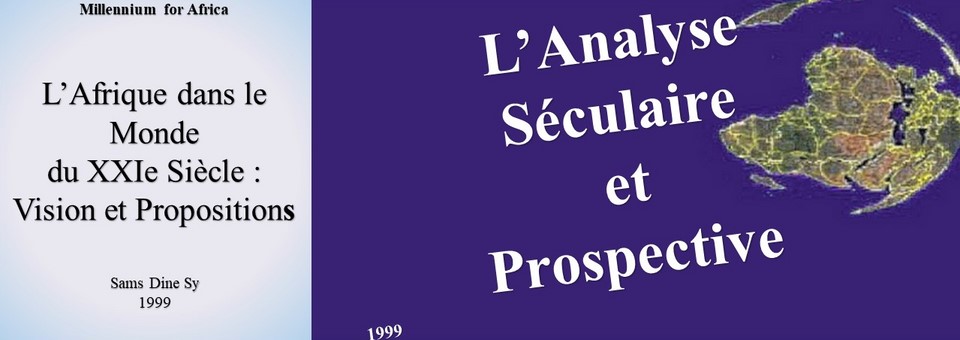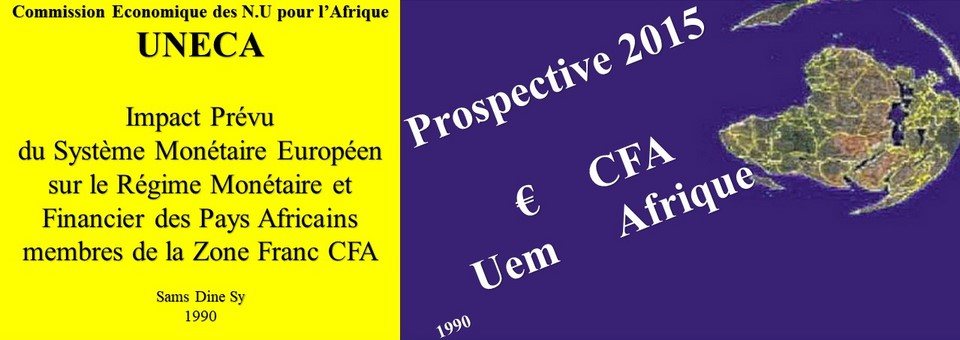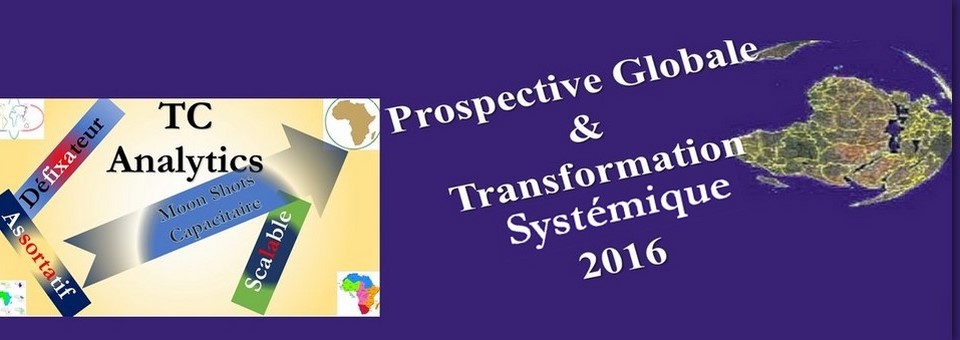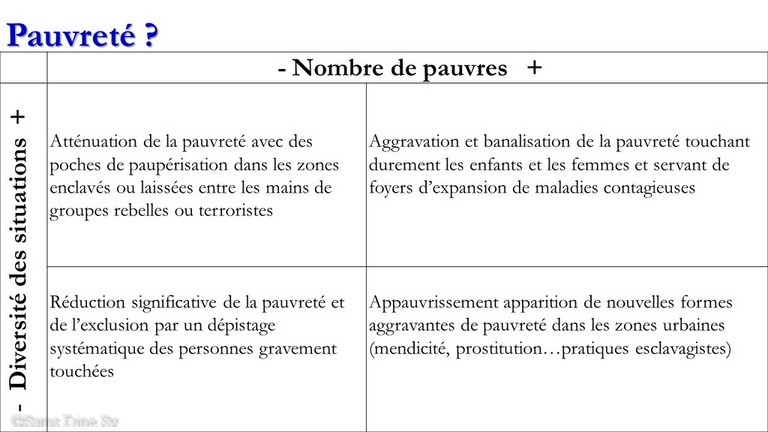Global ForesightUncertainties
Infography
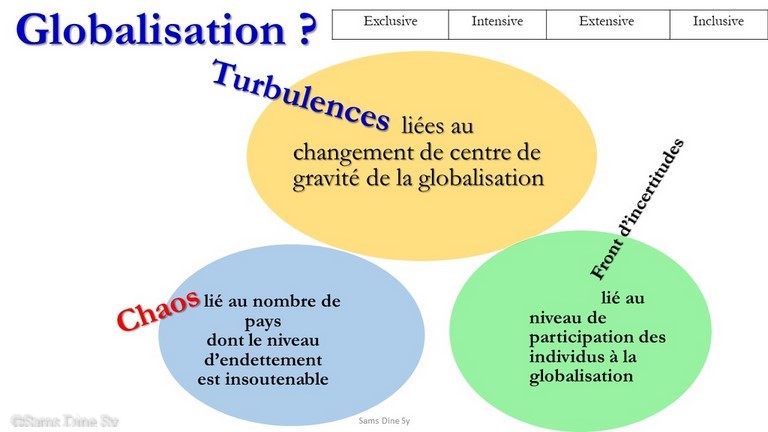
Globalization ?
In what form will globalization manifest itself?
The general trend is that of a process that can take several forms, one of which is more structuring than the others:
- an intensive form or financial globalisation: acceleration of trade in services and exorbitant power of financial markets in asset allocation, driven by financial and digital innovations. This form of globalization does not necessarily concern all regions of the world and is not necessarily limited to the planet and the real world;
- an extensive form or globalization of value chains: organization of economic activities around globalized value chains with the phenomenon of delocalization, the rise of oligopolies combining fragmentation and concentration of activities allowed by digital (fragcentration, glocalization), industrial, transport, energy and living innovations, generalization of global sourcing and off-shoring..;
- an exclusive form or post-polar globalization: Americanization of the world even if it is revisited by less unipolar principles but whose ambivalent role causes in turn a retreat around regional blocs and stimulates the emergence of global economic poles in view of a sustainable regulation of capitalism, without authorizing a catching-up effect..;
- an inclusive or enriched form of globalisation: the possibility of other regions or cultures, including African ones, taking back control of the globalisation process makes it possible to envisage a world whose centre of gravity lies elsewhere than in America and Europe, thereby enriching the globalisation process.
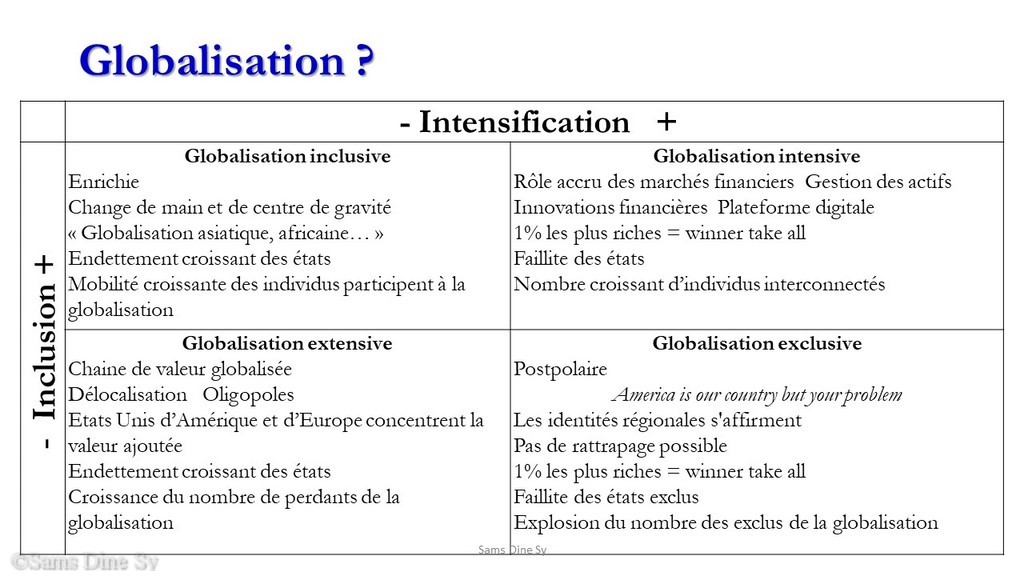
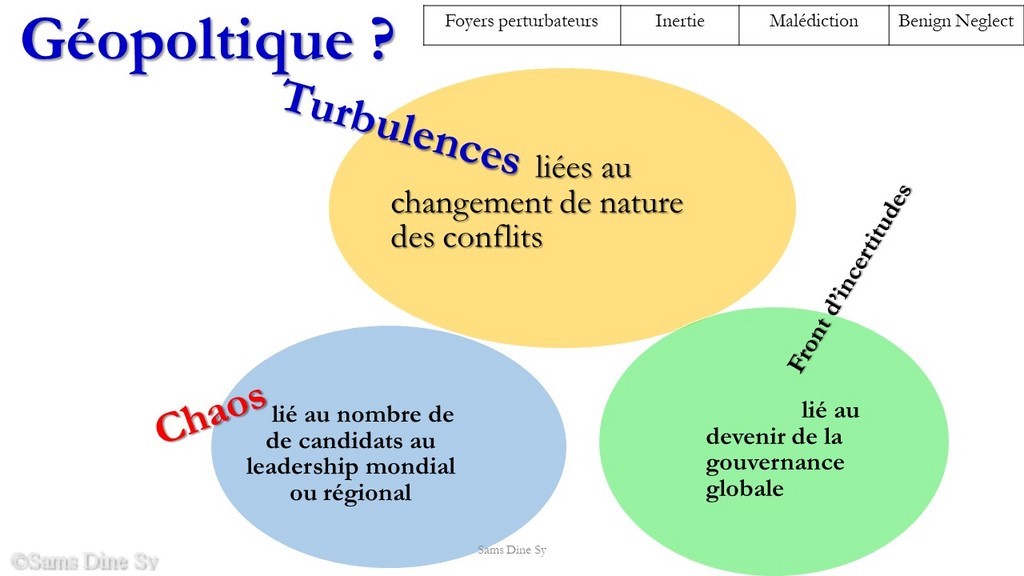
Geopolitics?
Africa, unlike other continents, has not been drawn into ongoing violent conflicts and mass crimes on the scale of world wars. However, in view of the map of global conflicts, one cannot help speculating that the "trouble spot" will shift from Asia Minor to Africa. Efforts to extinguish conflicts in Central, Northern and West Africa augur well for contagion.
Nothing excludes a failure of the cultural and religious foundation on which Africa has built its legendary reputation. Moreover, the continent's resources are more coveted than ever by major powers, multinationals and criminal powers. The success of efforts to secure populations likely to be affected by these scourges will determine Africa's future as a strategic landscape of violence. However, there are sufficient signals that the continent will remain a zone of relative peace. The assumptions on the geopolitical situation are as follows:
- Homogeneous and relatively stable space
- Formal cohabitation and sporadic conflict zones that can degenerate into violent ethnic or religious conflicts;
- Preeminence of "regional clusters" or economic poles and country pairs (axes or mergers between countries), despite serious problems of resource sharing requiring political trade-offs;
- Emergence of a core of cultural stability and anchoring with increased appreciation of cultural wealth and wisdom principle.
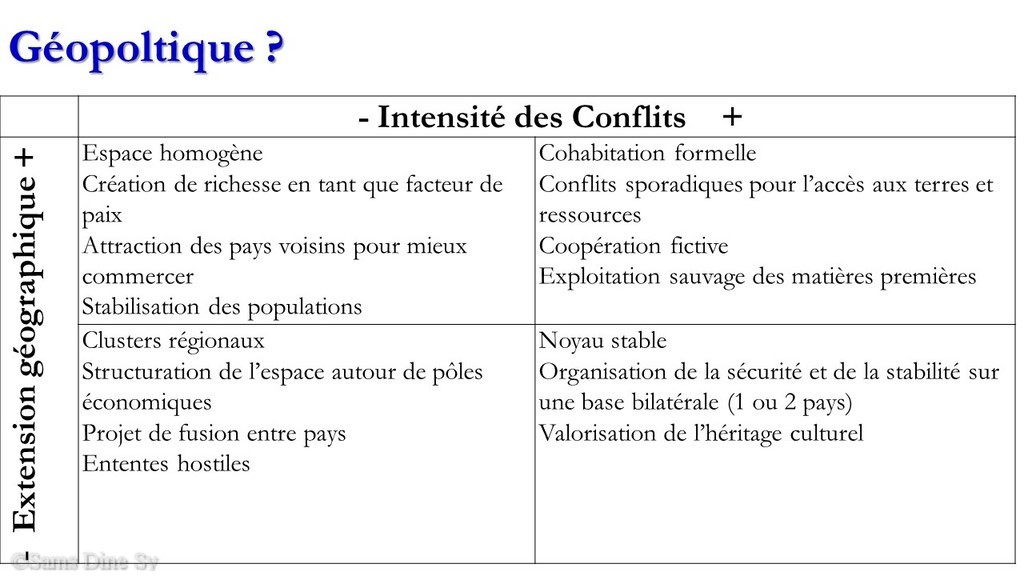
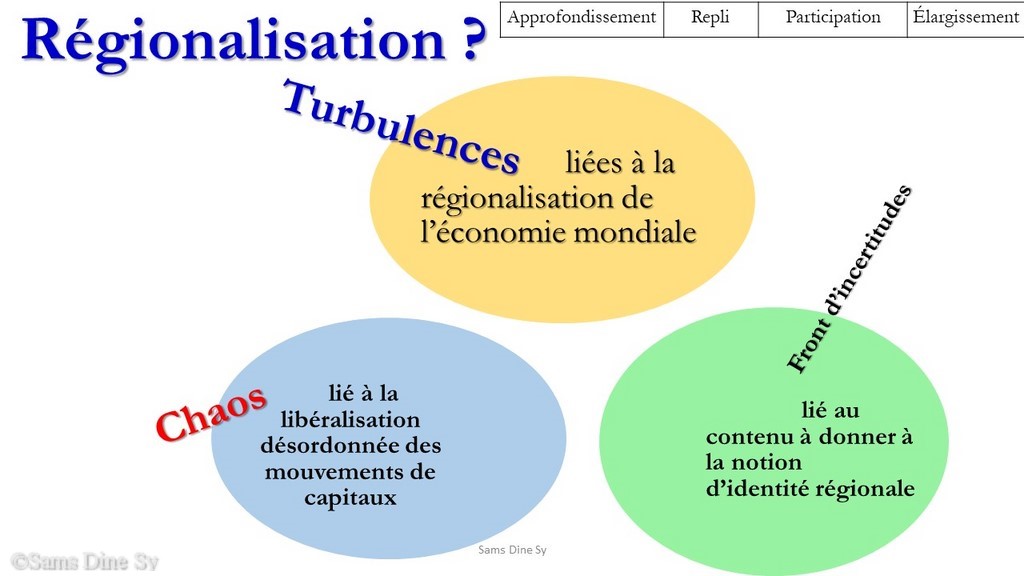
Regionalization?
The modalities of regionalization of Africa are multiple but can be classified in the following categories:
- deepening within the same area in the same way as other continental or federal entities
- participation in globalisation through the Euro-American or Eurasian spaces without the benefits being there;
- enlargement by attracting neighbouring regions and global breakthrough within the framework of global partnerships fostered by a new climate of cooperation within the international system;
- retreat and return to national policies as a result of failed reforms, conflicts and increased competition for land and resources between large and medium-sized powers
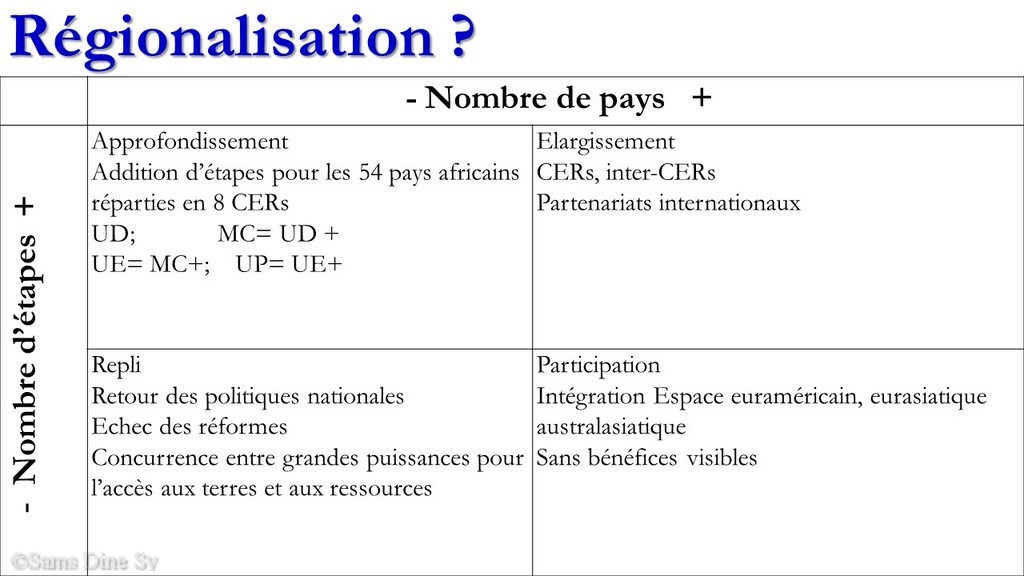
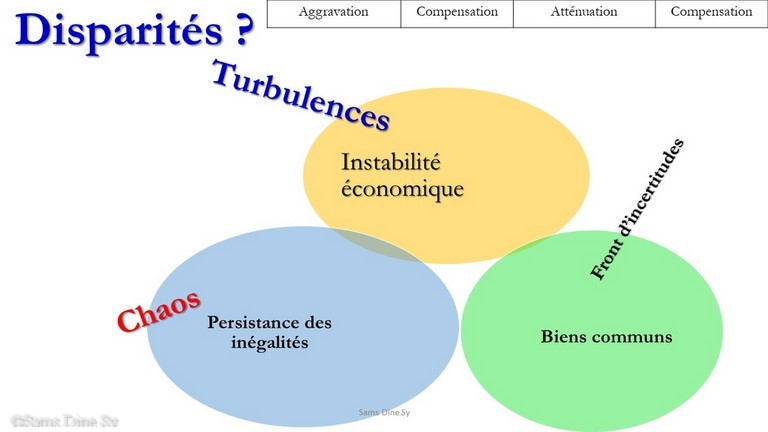
Disparities?
Drought and its socio-economic consequences, pandemics, but also insufficient resources and their poor management are at the root of serious disparities. It is possible that, as a result of Community policies, these disparities will be reduced. In terms of assumptions, the future pattern of disparities can be formulated as follows:
- Reducing disparities thanks to a favourable climate change;
- Increasing disparities between coastal and continental Sahelian zones, between river basins and arid zones due to climatic hazards (floods, sand winds, rise in temperature);
- Partial harmonization and offset efforts through a sound community infrastructure management and allocation policy (functional approach);
- Transformation of disparities into complementarities by countries that organize on a bilateral basis.
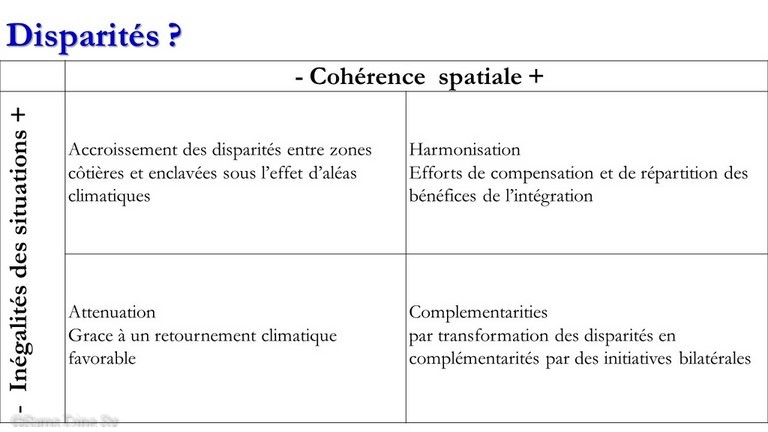
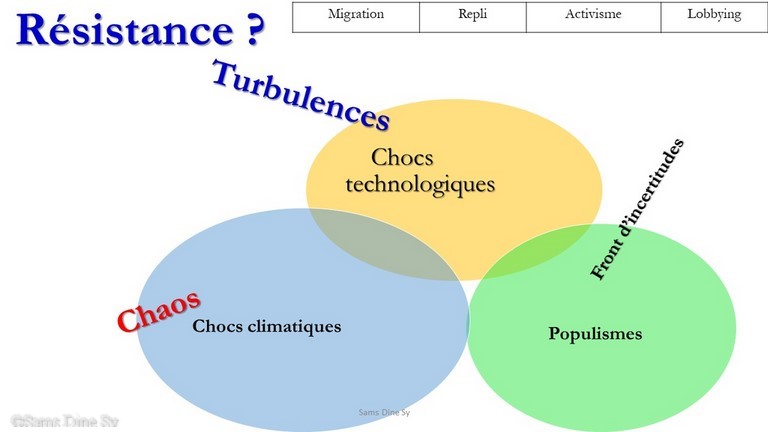
Resistances ?
People and citizens occupy a central place in African space and give it a particular cachet because of its historical context and cultural heritage. The common problems they share lead them to support integration even in the absence of effective or dedicated structures and to combat some of its forms. The events will be as follows:
- mobilisation against globalisation (activists, alterglobalists) multiplying capacities through the intensive use of social networks in cyberspace
- through organized pressure groups (political parties, trade unions, religious instrumentalized by lobbies close to the powers in place)
- weariness of the assisted resulting in a withdrawal of identity and a certain dose of fatalism
- urban riots by populist youth and women's groups followed by mass exoduses and migrations, reflecting a desire to escape their conditions, even if it means leaving to attack European and American fortresses.
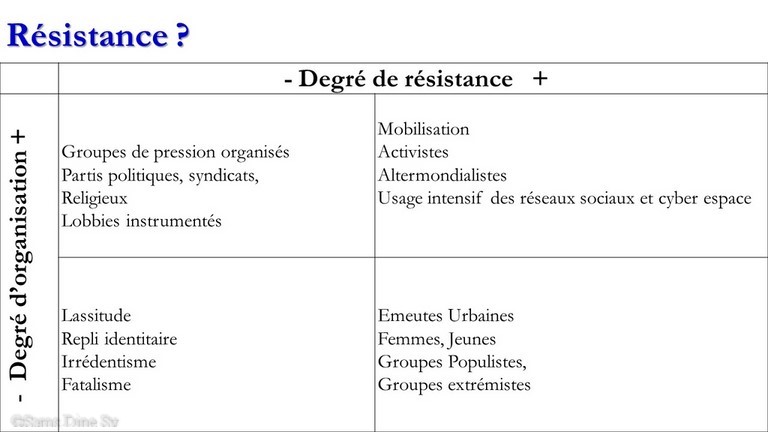
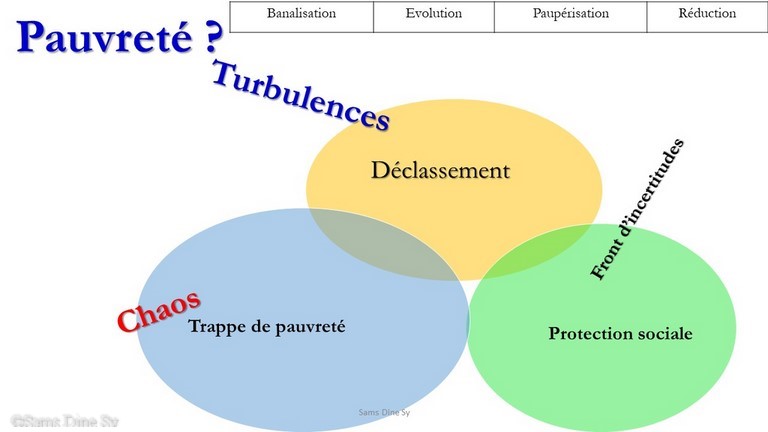
Poverty?
Poverty is undoubtedly the most widespread scourge in Africa, despite all the programmes aimed at eradicating it. Demographic pressures could still arise as a result of a transition that is slow to materialize, especially in landlocked countries. Poverty could be accompanied by large-scale migration to peri-urban areas and Western countries whose policies would be relaxed to deal with the acute problems of ageing and pension financing. Between aggravation and reduction, the paths of poverty are still largely open:
- aggravation and trivialisation of poverty, which severely affects children and women and serves as a breeding ground for contagious diseases ;
- the emergence of new aggravating forms of poverty in urban areas (begging, prostitution, paedophilia, organ trafficking, mass suicides and increased slavery);
- poverty alleviation with pockets of pauperization in isolated areas or left in the hands of rebel or terrorist groups ;
- significant reduction of poverty and exclusion through systematic screening of severely affected people.
